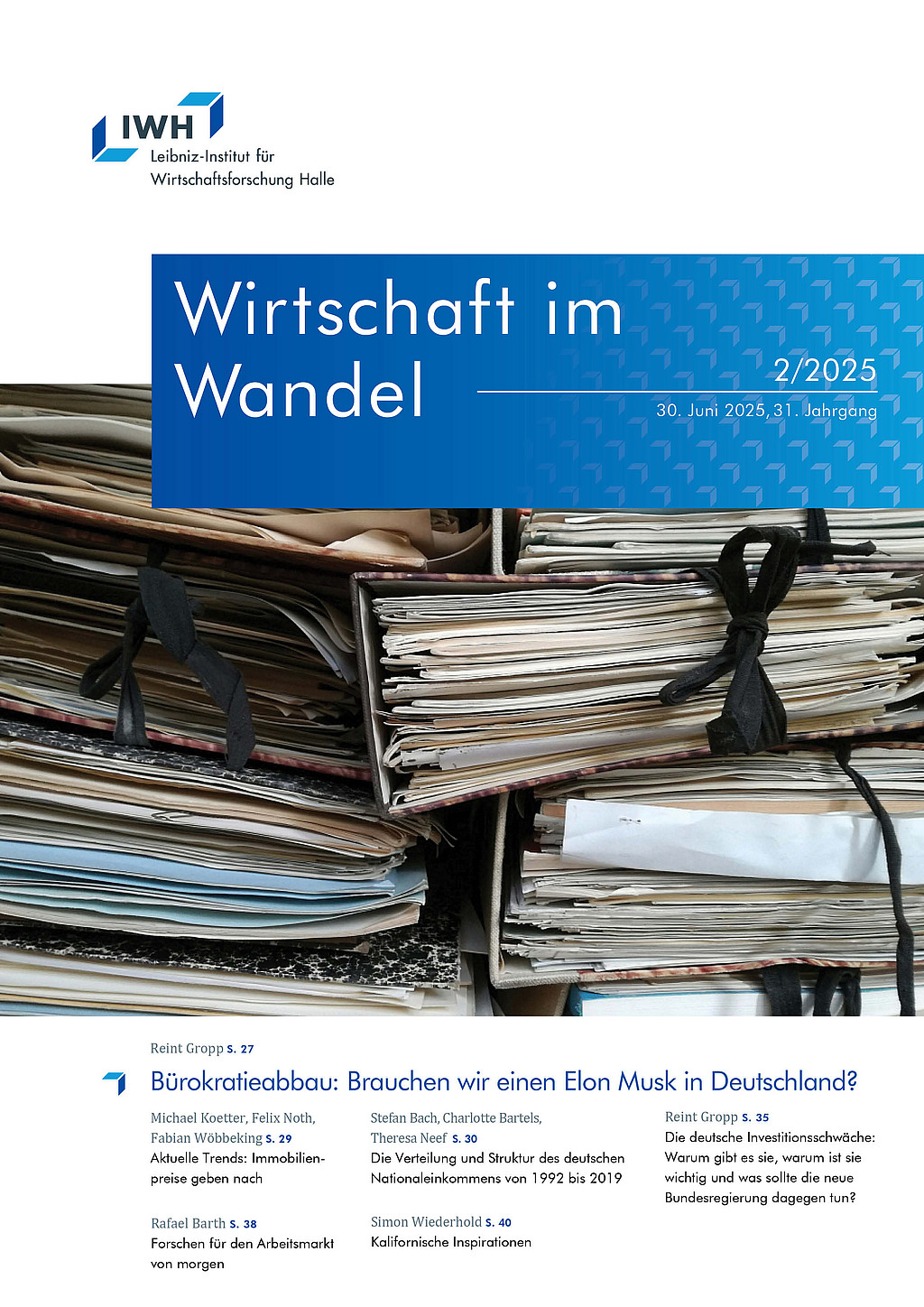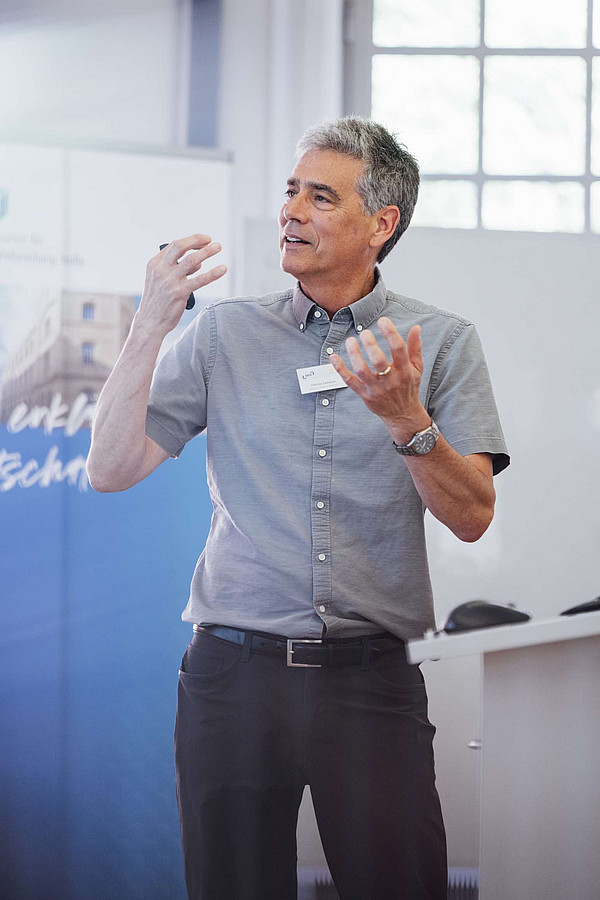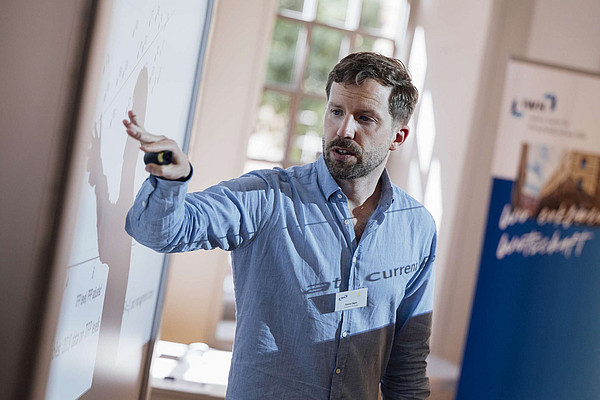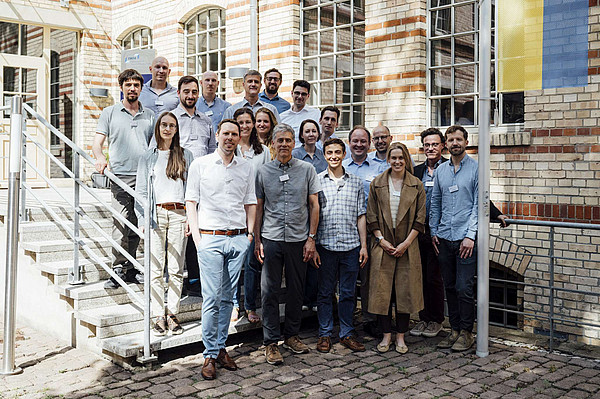
Research for the labour market of tomorrow
The economic transformation is visibly reshaping the world of work. At the Halle Institute for Economic Research (IWH), the Structural Change and Productivity Department will intensify its analysis of these developments – and is evolving in the process. A high-profile conference with an unusual format recently provided important momentum.
01. July 2025
https://doi.org/10.18717/ww86bh-mw45

Princeton, Berkeley, and Cambridge: some of the most prestigious places in global academia were represented at the inaugural IWH Senior Workshop on Future Labour Markets (FLAME), held in Halle. The conference, initiated by IWH researchers Steffen Müller (Head of the Structural Change and Productivity Department) and Simon Wiederhold (Senior Research Advisor), followed a distinctive format: no public call, no open application process. Participation was by invitation only. The goal was to bring together a small group of top international researchers, alongside excellent junior researchers, to exchange cutting-edge ideas in an intimate and focused setting. After a year of preparation, the first FLAME workshop took place on 13–14 June 2025.

Over the course of two days, two dozen scholars from the USA, Canada, Sweden, Norway, and Germany came together. Many of them rank among the leading experts in labour economics. Among them were Thomas Lemieux, co-editor of the Handbook of Labor Economics, who co-organised the event and presented on the role of unions in wage distribution; Simon Jäger, a professor at Princeton University whose advisory work extends into German federal policy; and Benjamin Schoefer from UC Berkeley, who has long been affiliated with the Halle Institute as a Research Fellow. Events like FLAME not only raise the Institute’s international profile but also provide fertile ground for new collaborative research projects.
FLAME offered an atmosphere of vibrant scholarly exchange. Thanks to the warm spring sunshine, many research posters were presented outdoors in the IWH courtyard. Inside the conference hall, intense focus and intellectual engagement prevailed. The discussions were animated and often could have continued well beyond the allotted time – testament to the depth and diversity of the research questions. Topics ranged from the distributive effects of minimum wage laws to gender gaps in salary negotiations, from firm-sponsored training to the implications of private healthcare uptake for public systems.

What economists debate today can shape tomorrow’s policy. With its combination of rigorous academic research and a growing role in policy advising, the Halle Institute continues to position itself as a hub for leading international scholars. FLAME exemplifies this evolution. The event will now be held regularly in Halle, reinforcing the Institute’s ambition to become a leading European centre for research on structural change in labour markets.

There is no shortage of pressing questions – Germany’s ongoing debates around the minimum wage, the structural implications of coal phase-out, and the twin challenges of digitalisation and climate transformation. Wage formation and employment, unionisation and institutions, automation and green innovation: the labour market is evolving on multiple fronts. These transitions raise opportunities, risks, and important societal questions. The Structural Change and Productivity Department is committed to addressing them through targeted, policy-relevant research.
This strategic focus aligns with another recent milestone at the Halle Institute. In early 2025, the Centre for Business and Productivity Dynamics (IWH-CBPD) was spun off from the Department and significantly expanded. As an independent, cross-cutting unit, the Centre collaborates with all research departments at the Institute and uses firm-level microdata to analyse productivity dynamics in European economies. Meanwhile, the Structural Change and Productivity Department is expanding its research on labour market transformation and recruiting new labour economists – further strengthening its visibility in the field.
Further impressions and the programme of the FLAME conference on the IWH-Website.
Pictures: IWH, © Thomas Victor.





